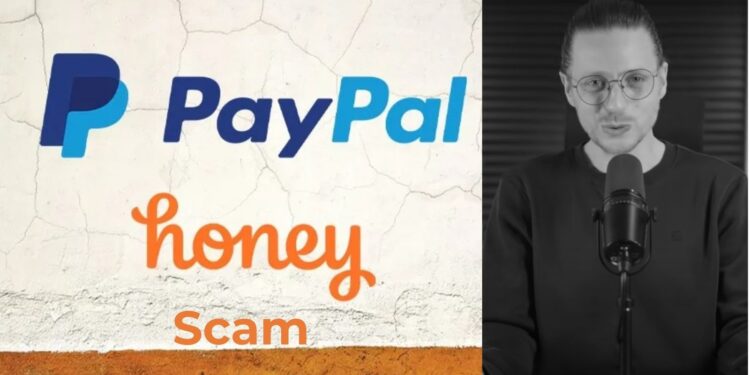In a shocking exposé, PayPal’s Honey browser extension has come under fire for alleged unethical practices targeting both consumers and influencers. The extension, which gained popularity as a tool for automatically applying coupon codes during online shopping, has been accused of stealing affiliate commissions from influencers and misleading consumers about its savings capabilities. This controversy was exposed by popular Jonathon who runs the MegaLag YouTube page. highlights critical gaps in transparency and ethical behaviour within the tech ecosystem.

The Allegations: A Tale of Two Scams
1. Stealing Affiliate Commissions
One of the most damning accusations against Honey is its practice of overriding affiliate links promoted by influencers. Influencers often rely on affiliate programs to monetize their platforms by recommending products to their audiences. Honey reportedly hijacks these links, replacing them with its own, thereby claiming the commission intended for the influencer.
This practice not only robs influencers of their rightful earnings but also undermines trust within the affiliate marketing ecosystem. Notable figures, such as Linus Tech Tips—a prominent tech YouTuber—are cited as victims of this exploitative tactic. By pocketing the commission, Honey generates revenue at the expense of content creators who drive sales.
2. Misleading Consumers
Honey markets itself as a savior for online shoppers, promising to find and apply the best available coupon codes. However, the exposé reveals that Honey often fails to deliver on this promise. Instead of applying the best deals, the extension allegedly withholds better coupon codes, favoring those pre-approved by its partnering stores. This means consumers are not always receiving the savings they were led to expect.
Deceptive advertising practices further compound the issue. Honey’s aggressive sponsorship campaigns across YouTube, featuring thousands of influencers, have helped perpetuate misleading claims about its effectiveness. Consumers, trusting these endorsements, are left feeling shortchanged.
The Legal Implications
The allegations against Honey have sparked discussions about potential legal ramifications. If proven, its actions could constitute fraud, opening the door for lawsuits and regulatory scrutiny. Stealing affiliate commissions and misleading consumers are not just unethical but potentially illegal practices that could attract penalties.
Impact on Influencers and the Ecosystem
The fallout from this controversy has implications far beyond Honey. Influencers who unknowingly promoted the extension now face reputational risks, as their audiences question the legitimacy of their endorsements. This also serves as a cautionary tale for brands and influencers alike to conduct thorough due diligence before entering into partnerships.
For the broader tech community, this case underscores the importance of transparency and accountability. Tools like Honey, which operate at the intersection of technology and consumer behavior, must adhere to ethical practices to maintain trust.
Lessons for Black and Diverse Entrepreneurs in Canada
This exposé serves as a timely reminder for Black and diverse entrepreneurs in Canada to prioritize transparency and ethics in their ventures. As the tech ecosystem continues to grow, entrepreneurs must learn from such controversies to build businesses that value trust and integrity.
For startups and founders, particularly those in the affiliate marketing or e-commerce space, it is essential to:
- Conduct Due Diligence: Understand the business practices of any tool or partner before promoting or integrating it into your operations.
- Prioritize Consumer Trust: Deliver on promises and ensure transparency in your offerings.
- Foster Ethical Partnerships: Build relationships with platforms and tools that share your commitment to ethical practices.
The Road Ahead
As investigations into Honey’s practices unfold, the spotlight is on PayPal to address these serious allegations. For the tech community, this controversy is a wake-up call to demand higher standards of accountability and transparency from industry players.
Consumers and influencers alike should remain vigilant, ensuring that the tools they use and promote align with their values and expectations. At a time when trust is paramount, companies must rise to the occasion to rebuild confidence and demonstrate their commitment to ethical innovation.
Stay tuned to Techsoma Canada for the latest updates on this developing story and insights into the tech ecosystem.













